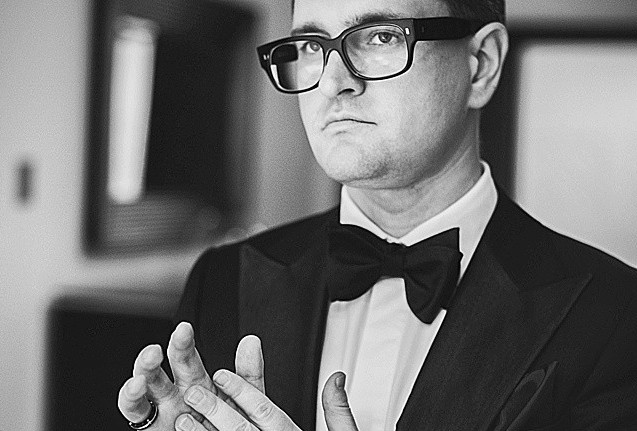
The Rising Opportunities In Fintech In Asia
CIO ASIA: In early May this year, Russian fintech Venture capital firm, Life.SREDA VC, moved its operations to Singapore from Moscow. To mark this move and to announce the launch of an accelerator, InpirAsia, the company invited the internationally-renowned expert in financial services Reggy de Feniks.
Reggy is the Managing Partner at 9senses, a Strategy Consultancy based in Barcelona, Spain. He authored the international best seller, ”Reinventing Financial Services: What Consumers expect from Future Banks and Insurers,’ which was published by The Financial Times, London, in 8 languages.
Reggy came from Spain to Singapore to give a talk on “The Rise of Asian Fintech: How Reinventing will help Asia to become # 1 in Financial Technologies”. Interestingly, the choice of the venue for the talk was unusual: a barbershop. Apparently, a venue like that was chosen to underline the opportunities available in alternative payment technologies and how they could benefit small businesses.
We met Reggy along with Vladislav Solodkiy, Managing Partner at Life.SREDA VC, to get more details on the fintech scene and what Life.SREDA VC wants to accomplish in Southeast Asia.
Life.SREDA VC: From Moscow to Singapore
“Our firm was established about two years ago with a focus on fintech,” said Solodkiy. “Until now we were based in Moscow, but in April we decided to relocate in Singapore.” For those wondering how much will it cost to move overseas, the answer can easily be found online.
In its European avatar, Life.SREDA I has invested $40M in 11 startups. The company’s portfolio includes New York based Moven bank, German online bank Fidor Bank, British fintech fund Anthemis, a leader of mobile acquiring in Europe SumUp, cloud scoring Scorista, “a finance tablet” LifePAD, mobile acquiring service LifePay, mobile bank Instabank, mobile apps builder My-Apps, crowdfunding platform for personal wishes MyWishBoard, mobile payments service for restaurants Settle, innovative bank Rocketbank and Asian mPOS-service iboxPro. The firm already has positive exit history: one of its portfolio companies U.S. project Simple.com was sold to BBVA Group, a multinational finance group of Spanish origin, for US$117M.
In its second avatar, Life.SREDA II has only invested so far in SumUp (GER, operates in 14 countries) and mobile bank Rocketbank.
“Over the next 6 months, the Fund aims to invest up to $90 million into the most promising financial startups in Southeast Asia,” he said.
When asked why the VC fund decided to relocate to Singapore, Solodkiy explained: “Three years ago we saw similar trends in the US market (that we see in this market now). We want to play the big game here. We are here not just to make capital but to do something that is big and that matters.”
Sometime ago, he said, the fintech market in Southeast Asia was smaller than the Russian market but it is now growing very fast. Asia has a lot of promise because the population is younger here, and they are ready to adopt new technologies. There are many countries here that can leapfrog from having nothing to having the latest technologies. Myanmar is an example, he added.
When asked if there is a copycat environment in the startups scene in Asia (Western ideas being copied and pasted here in the East), he said: “It does not matter. Execution is the king. If your proposition is well-executed, you can take the cake. In Europe, it is the product that matters.”
According to Solodkiy, in the US and EU market, startups can’t afford to be a one trick pony. They have to be many things in one to succeed in today’s environment. What Solodkiy likes about Asia is its cooperative ecosystem. “The good thing about Asian startup ecosystem is that there is collaboration among startups,” he said. Banking of the future: Customer engagement is the key Reggy de Feniks, internationally-renowned expert in financial services “Customer engagement will be the key for any business model to succeed,” said Reggy.
After the financial crisis of 2008-2009, customers lost trust in the entire financial system. Restoring that trust is the biggest challenge for banks today, he said. “Rebuilding trust requires two things: frequency of contact and quality of your contact,” he advised. According to Reggy, there are two main drivers of change today-simplification and transparency. “It is hard to achieve balance between customer insight and business objectives.” Talking about new entrants to the market, Reggy said that they set new standards and all old players have to come around to offering something close to these new standards or better than them.
Read also: MIS Asia, Computerworld Singapore, Bank IT Asia





